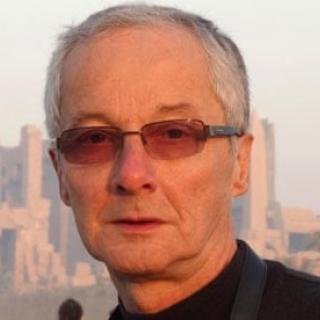Khalil Dale was born on 29 August 1951 in York, northeast England. He grew up in Manchester and qualified as a registered general nurse in 1974, after studying at Stockport School of Nursing. For the next four decades, he never stopped caring for others.
The first of many medical missions with the Red Cross family came in 1981. Khalil was seconded by the British Red Cross to an International Federation of Red Cross and Red Crescent Societies (IFRC) mission in Turkana, Kenya. In charge of a feeding programme, he did such a good job that the Kenya Red Cross Society made him an honorary life member. Recognition was never something he sought, but it regularly came his way. Khalil, who was born Kenneth and known to family and friends as Ken, converted to Islam the same year.
There followed further medical assignments with the Red Cross and other organizations to Saudi Arabia, Sudan and Afghanistan. While in Saudi Arabia (1982–1984), where he worked as an associate director of nursing in two hospitals, he completed a course in Classical Arabic and Islamic studies at the Islamic University of Medina. Khalil then spent three years in London as a mature student, studying geography with anthropology at the School of Oriental and African Studies (SOAS), University of London.
Soon after graduating in 1992, he embarked on his first mission with the ICRC, as a field nurse in Somalia, then in the grip of a major humanitarian crisis. As throughout his life, Khalil left a big impression on everyone he met. He was hard-working, brave, compassionate, dedicated to his colleagues and a constant force for good during what was a tough mission in Mogadishu.
After Somalia, he spent a year in London teaching nurses about tropical diseases at the Hospital for Tropical Diseases and the London School of Hygiene and Tropical Medicine. Teaching – sharing his knowledge and experience – was something he would return to throughout his career. Queen Elizabeth II awarded Khalil a Member of the Order of the British Empire (MBE) medal in 1994 in recognition of his humanitarian work overseas.
In 1995 he was back with the ICRC as a field nurse in Mazar-i-Sharif, Afghanistan, visiting detention centres, caring for the wounded and supporting hospitals. Colleagues who worked alongside him remember Khalil as gentle, funny, generous, kind and inspiring. There followed a mission to Iraq with the IFRC and a short spell with the British Red Cross as a health coordinator in London, after which Khalil joined the Hospital for Tropical Diseases as a staff nurse (1997–2000). During this time he also worked as a part-time lecturer at SOAS, jointly running and teaching the “Refugees, Returnees and International Aid” course. He also lectured part-time at Oxford University on the topics of “Famine Causation” and “Tropical Environments and Disease Ecology”.
Khalil then moved to Dumfries, Scotland, to care for his terminally ill mother, while working part-time as a staff nurse at the Dumfries and Galloway Royal Infirmary. He also supported people living with mental health issues. While in Dumfries, he pursued his love of photography, eventually gaining a Higher National Certificate in Photography. He later attended short courses at the Australian Centre for Photography in Sydney and had his work exhibited in several galleries in Scotland.
Following his mother’s death, Khalil returned to the field in 2008 as project manager for the Danish Refugee Council’s feeding programme in Mogadishu. In February 2011 he rejoined the ICRC as a health delegate in Quetta, southwest Pakistan, later becoming health programme manager. A year later, on 5 January 2012, Khalil was abducted from an ICRC vehicle by unidentified armed men as he returned home from work. Extensive efforts to secure his unconditional release were unsuccessful, and his body was found in an orchard in Quetta on 29 April. Khalil was 60 and engaged to be married.
In 2013 he was posthumously awarded the Robert Burns Humanitarian Award. As his family wrote after his death: “Without question, Khalil was amongst the most gentle, most kind and most loving persons we have ever known. For all who knew him, his deeply caring and considerate nature was what left a lasting impression. His tireless work with the most impoverished and vulnerable people of the world was a reflection of his beliefs in love, in solidarity and in compassion. He was a true humanitarian.”






